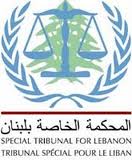
One of the more bizarre reports to emerge from the attack on United Nations investigators at a Beirut gynecology clinic this week was the suggestion that some of the assailants who stole documents from those probing the death of former Lebanese Prime Minister Rafik Hariri were men dressed as women.
Local television has discussed the incident, which saw Special Tribunal for Lebanon (STL) investigators harassed and physically assaulted, at length and from increasingly tenuous viewpoints. One thing is, however, clear: the first instance of public dissatisfaction with the UN court for Lebanon is not without precedent for the organization.
Word from The Hague is that Prosecutor Daniel Bellemare is reaching the final stages of his investigations into who placed the bomb that killed Hariri and 22 others on Valentine’s Day 2005. The court has recently ratcheted up its media activities, with a Lebanese press delegation given a tour of STL and other UN justice facilities last week.
Although security was extremely tight (no phones, recorders, cameras or laptops in courtrooms) and freedom of movement heavily orchestrated, something that has been discussed in the wake of the press trip should give STL workers and supporters cause for comfort.
It came in the form of parallels between the beleaguered Lebanon investigation and another UN tribunal, for the former Yugoslavia.
Given UN ratification in May 1993 following mass atrocities in Croatia and Bosnia and Herzegovina involving repeated aggression carried out on the orders of former Yugoslavian leaders, as well as fighting between Bosniaks and Croats and several other ethnic groups, the ICTY was mandated with bringing war criminals to justice.
With such a fierce and complex conflict from which to extrapolate facts, evidence and cohesive burdens of proof, the challenge facing investigators was huge, as was initial opposition from several factions. Intimidation and bureaucratic barracking soon followed.
In a similar vein, the UN’s initial investigation team, headed by Detlev Mehlis, progressed in a chaotic manner. Four ex-Lebanese army generals perceived to harbor pro-Syrian sympathies were detained for four years, without charge, on the testimonies of witnesses subsequently discredited by Bellemare. The witnesses, whom are “no longer of interest” to the court, have slipped under the radar; some even claim to be living under UN protection in Europe.
It did not take long for accusations of politicization to follow the establishment of the court, which has been buffeted by attempts to undermine its credibility and plagued by successive high-profile resignations.
Similar charges were laid against the ICTY, with opponents claiming the court aimed at dividing the former Yugoslavia for regional political gains. There were those who warned the investigation could reignite simmering inter-sectarian tension between Muslims and Christians, a constant fear for Lebanon’s multi-confessional society in which religious antipathies still simmer.
Further symmetry between the two UN tribunals is apparent. The smear campaigns against ICTY prosecutors mirror that aimed at Mehlis, who has been dogged by allegations of misappropriating STL resources with flamboyant entertaining, as well as an arrest warrant from neighboring Syria.
Those targeted by the ICTY accused the court of working on behalf of United States and international intelligence agencies; Hezbollah – members of which are anticipated to be named in future STL indictments – has slammed the court as “an Israeli project.”
Even domestic funding for both courts has been threatened, with several Lebanese Government members warning that their parties will not sanction financial support for a tribunal they see as unconstitutional and impinging on domestic affairs, even threatening civil stability.
The two courts’ missions are different in type and scale, but both essentially seek to provide justice for victims of politically motivated crimes. Both are divisive and will be the target of attacks, inevitably, by people or parties who fear they themselves may end up in the dock. For all the tension swirling around the STL currently, it is worth recalling the tribulations once faced by the ICTY. It is then worth mentioning that the court has to date indicted 161 persons and concluded proceedings against 124.
The STL has reached a stage where all that bars it from indicting is pressure from Lebanese and regional power players. The warning that violence may sweep Beirut’s streets should indictments be brought against certain individuals is slightly beside the point; we all know who would win the fight.
The UN, faced as it is with a challenge to its authority as an independent arbiter of international justice, must demonstrate patience. As easy as it is to say, Lebanon must decide whether it truly believes its blurb of being a society which values justice, or if fairness can go hang upon the say-so of certain strong armers.
The tribunal for the former Yugoslavia, with all its initial traumas, continues to bring criminals to book. What both Beirut and The Hague would do well to recognize is that history demonstrates the value of persistence.
By: Patrick Galey

Leave a Reply
You must be logged in to post a comment.